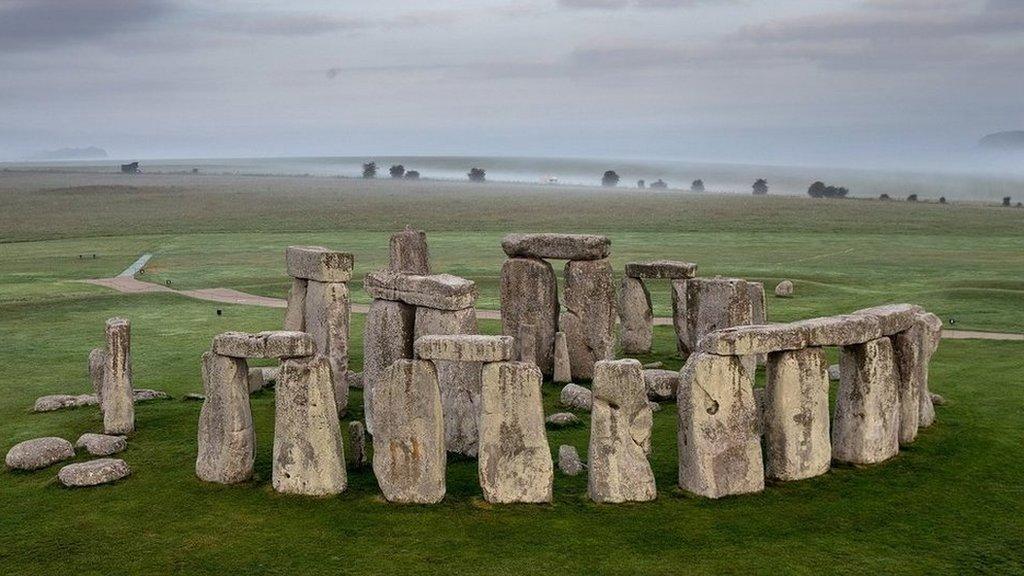A303 tunnel 'could destroy' part of Stonehenge site, court told
- Published
- comments
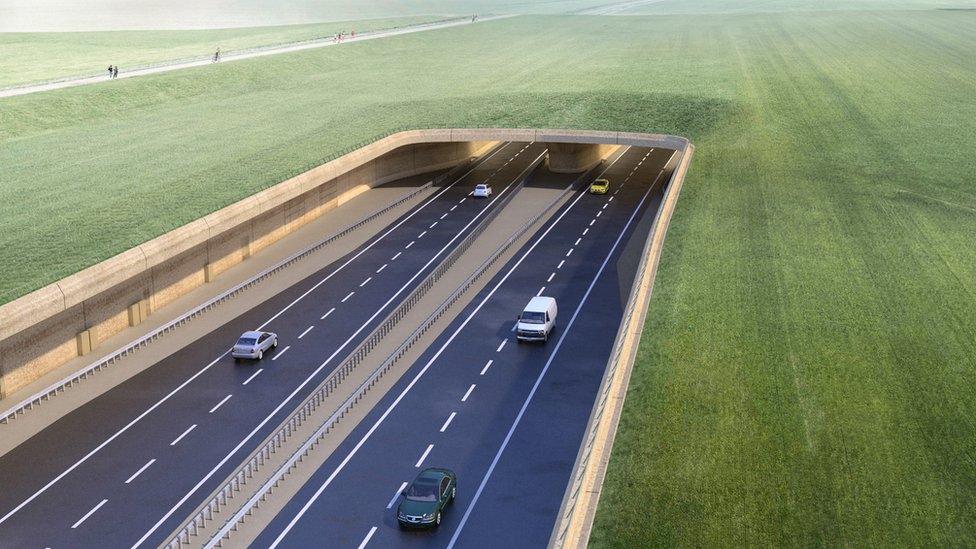
Highways England said the tunnel would reduce A303 traffic and cut journey times
A road scheme could "destroy" part of the Stonehenge site, a change which would be "permanent and irreversible", a court has been told.
Campaigners are making a second High Court bid to try to block the scheme.
They say the government is "irrational" not to take heed of Unesco's warning the ancient monument could be put on its list of heritage sites "in danger".
The government has said the tunnel would reduce journey times and combat traffic jams.
Lawyers for Save Stonehenge World Heritage Site (SSWHS) said building the tunnel would mark "the first step being taken towards de-listing" and would be "the direct result" of the government's decision.
SSWHS is challenging Transport Secretary Mark Harper's backing of plans to overhaul eight miles (12.8km) of the A303.
In written arguments to a hearing at the Royal Courts of Justice in London, David Wolfe KC, for SSWHS, said campaigners had set out the effects of the site being de-listed by Unesco, arguing its value "must be considered to this and future generations".
'David v Goliath'
Mr Wolfe said the approved scheme would "destroy" around seven hectares of the world heritage site.
James Strachan KC, for the Department for Transport (DfT), said in written arguments: "The world heritage site has not been delisted, nor is it said that it will be de-listed if the… scheme proceeds."
The chair of the Stonehenge Alliance John Adams said they had "no choice" but to bring legal action.
"We have had to crowdfund for our legal fees. It's really like David and Goliath," added Mr Adams.
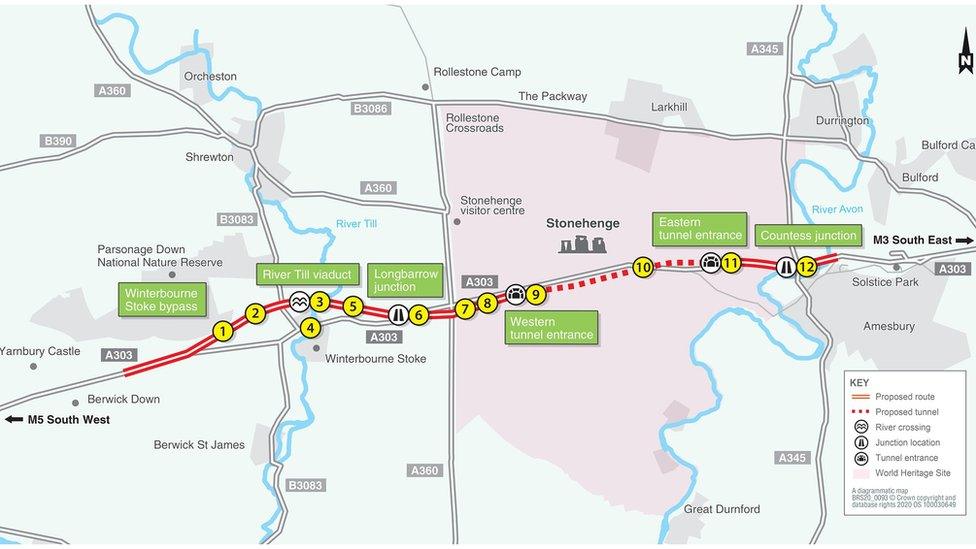
The plans for the road tunnel were approved in July, after legal action was taken by campaigners in 2021
He said the site was crucial to protect - not just for the benefit of the UK, but the whole world.
He said plans for the two-mile tunnel would speed up journey times by "only a few minutes", adding it was a "bad use of public funds".
Mr Adams added: "We want National Highways to further explore alternatives that would take the road right away from the World Heritage Site."
The project received government approval in 2020, before being quashed following a successful campaign at the High Court in 2021.
But the Department for Transport approved the £1.7bn tunnel - from Amesbury to Berwick Down in Wiltshire - on 14 July.
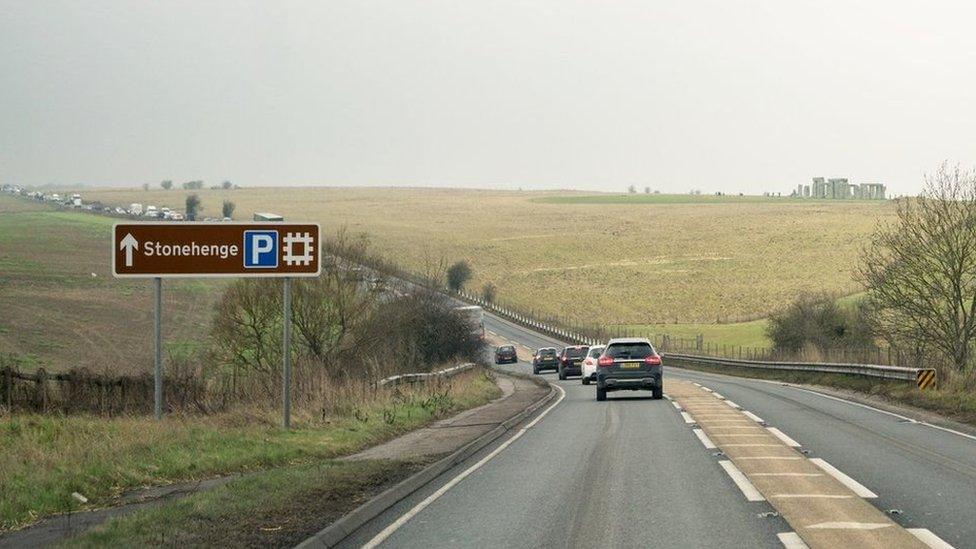
Traffic often builds up along the A303, with many motorists slowing down to look at Stonehenge as they pass
More than 230,000 people have signed a petition against the proposals.
Unesco, which awarded World Heritage Site status to Stonehenge, has said the proposals "should not proceed" without amendments.
David Bullock, A303 Stonehenge project director for National Highways, said: "We acknowledge there is a clear process for any legal challenge.
"We are taking part in that legal process and we remain confident this scheme is the best solution for tackling a long-standing traffic bottleneck, improving journeys, bringing much needed relief to local communities and boosting the economy in the south-west, while conserving and enhancing the World Heritage Site.
"In the meantime, and following the granting of the scheme's development consent order, we are continuing to plan and make preparations for starting preliminary work and archaeology fieldwork in 2024."
British historian and television presenter Dan Snow insisted there were other solutions to reduce traffic around the site, which is about 10 sq miles in area.
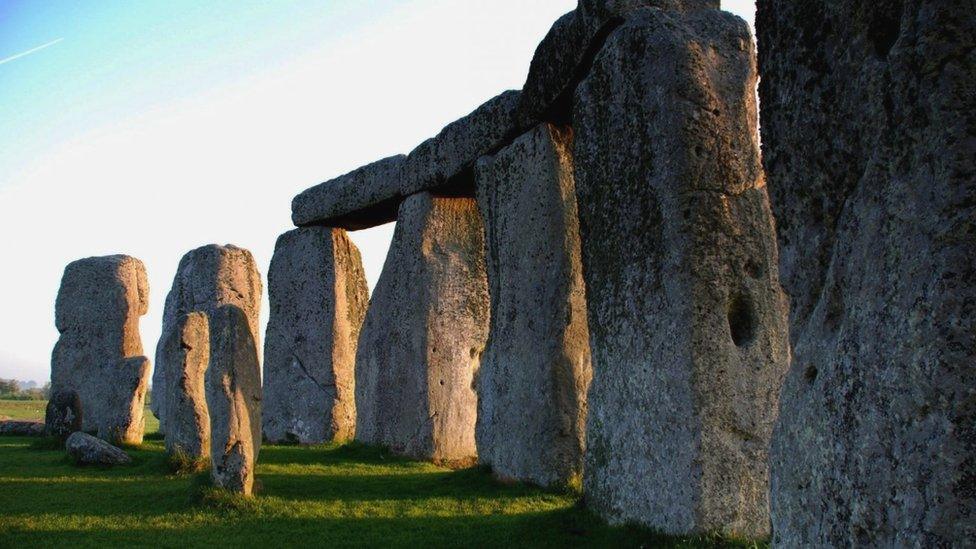
Stonehenge is one of 33 World Heritage Status sites in the UK
Mr Snow told the BBC: "Stonehenge is one of the most precious, one of the most remarkable heritage sites on planet earth. It's very important that we don't smash up this site by driving a tunnel right through it.
"We're discovering things all the time in this landscape. We're only just beginning to unlock its secrets. We cannot drill a massive couple of holes through it.
"I think campaigners are right to use every legal avenue to challenge this disastrous decision."
The Stonehenge archaeological site on Salisbury Plain was built in several phases from around 3100 BC to 1600 BC.
The site may have held international religious and spiritual significance for Pagan Britain.
Sacrificial graves have been found containing livestock from northern Scotland at the site, suggesting it may have been a place of pilgrimage during the Neolithic Age.

Follow BBC West on Facebook, external, X, external and Instagram, external. Send your story ideas to: bristol@bbc.co.uk , external
- Published19 September 2023
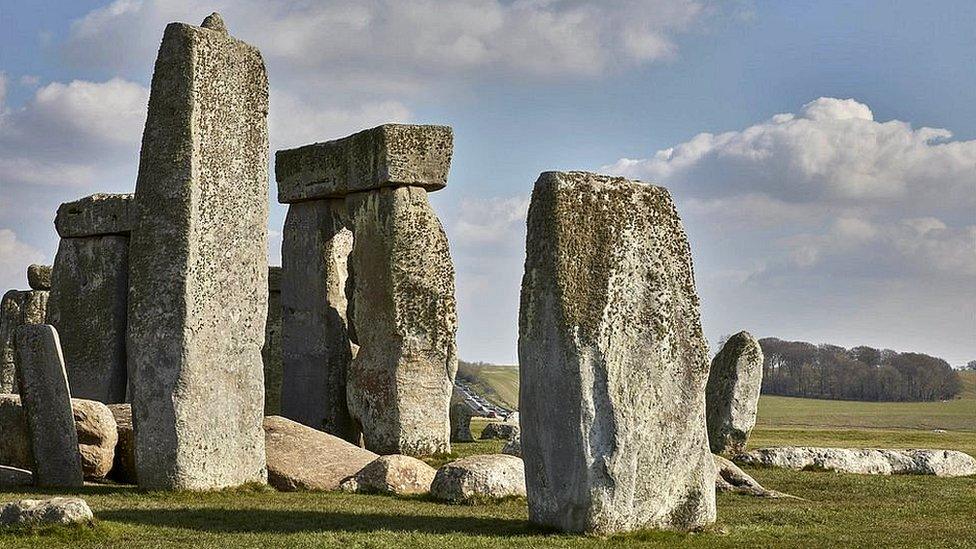
- Published21 June 2023
- Published28 July 2023
